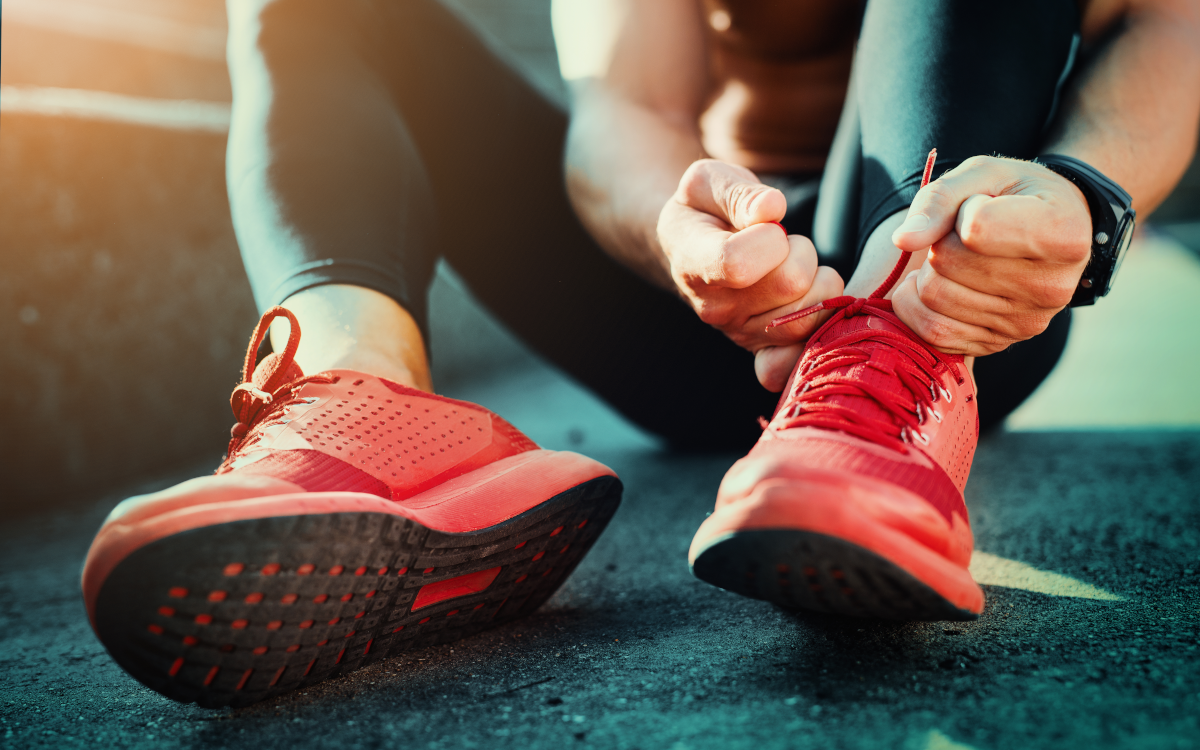Grab your cheat sheet |
Of all the challenges you set yourself in life, running a marathon can be one of the most rewarding.
The build-up to the event, including the training, and the big day itself, can be an overwhelming experience you'll never forget. You might even enjoy it so much—you decide to run more.
Make no mistake: Marathon training takes up a lot of your time, effort, and energy. It’s also tough on your mental and physical energy. Running 26.2 miles is a big step and one which requires plenty of planning.
Those who go out for a ten-minute run each day to prepare or those who think they're fit enough already through other activities are likely to be found wanting when it comes to the big day. There's certainly no harm in taking part in other physical activities to get you fit for your first marathon. But there's one thing that will prepare you more than anything else…running.
If you're new to running, it's essential to prepare properly. This means preparing a proper training schedule and eating the right nutrition.
Here are ten tips that you should heed if taking on your first marathon.
Finding your motivation
Are you running a marathon for your own fitness, to raise money for a charity, or maybe it's on your bucket list?
Whatever your reason, keep it at the forefront of your mind when you're training and racing. If you can find a like-minded runner to train with, so much the better.
A running buddy can help tremendously, not least by getting you running on the days you don't feel like going out.
Joining a running club is another good idea as there are likely to be members who have been in the same place as you and will be willing to offer advice.
Speaking of advice, let's look at the things you must do if you want to stay the distance.
10 essential marathon training tips

There are plenty of things to consider when taking on your first marathon. Here, we’ve listed 10 essentials below that must be on your list if you’re going to tackle the big one.
1. Give yourself plenty of time to prepare
How many weeks you need to train for your first marathon will depend on your current level of fitness.
If you’re relatively fit through running regularly, you should be planning for a minimum of 12 weeks. If you're a complete newcomer, you should give yourself around 16 to 20 weeks to prepare.
Preparing your muscles for a 26-mile run will take time and regular long and short training runs and essential recovery days will help them adapt to the task ahead.
2. Get a decent pair of shoes
The first place to start is to obtain a pair of running shoes that will suit both yourself and marathon running.
Sports shops are usually great at advising you which range is built for long-distance running. Choose a pair from this range which are the right size and feels comfortable to you.
Often, the sales assistant can help you choose based on the way you walk and how much pressure you put on each side of your feet.
Bonus tip: Get a gait analysis to decide on the best possible soles and insoles for your specific stride and running style.
3. Be aware of the marathon training phases
Training for a long-distance run involves preparing yourself physically and mentally for the challenge. The amount of mileage you cover each week during training will go up and then down.
You should mix in some shorter runs during the week and one long run at the weekend.
Phase one
The first phase of the training will involve shorter runs, which will get you used to the feeling of running and breathing heavily as you run.
It's a feeling that can be uncomfortable at first, but it's something you'll get used to as you progress. During this phase, you should be running up to 20 miles per week.
Phase two
The middle phase of the training plan should involve longer, slower runs to help build up your slow-twitch muscles and stamina.
There's no need to run a full marathon distance before the event. The most you should run in one day is 22 miles, but it's not essential. Regular runs of 16-plus miles will help you to adapt to longer distances and will train your muscles to cope with the demands. You should be looking to up your mileage to 30 to 40 miles each week.
Phase three
The final third of your training schedule should have you running up to 50 miles per week, except the final couple of weeks when you should "taper".
Tapering involves significantly reducing the intensity and distance you run in the final two to three weeks of training so that you don't over-train just before the event.
You should typically reduce your mileage by around 50% a couple of weeks before your marathon and reduce by 75% on the week of the race, with no long runs during this period.
4. Make sure your training and racing nutrition are solid

When thinking about your nutrition, you should think about healthy options at all times. Firstly, to keep your body in good shape and power you through the training schedule.
A marathon training diet needs to do two things: Provide all the nutrients you need for overall health and support your marathon training and racing.
It requires a diet containing rich foods that contain carbohydrates, protein, healthy fats, vitamins, minerals, and plenty of hydration.
Let's look at the primary food sources you should weave into your pre-marathon diet. Let’s take a look at the big-hitters.
Protein
When you start running regularly, you'll find that your legs get pretty sore. This is because you're using muscles which have been dormant for a while. When you run, fine tears will occur in your muscles. These tears will repair and grow stronger thanks to the amino acids in your body.
Recovering from exercise is essential if you run regularly, and protein is packed with amino acids that help rebuild and repair cells and tissues. So, a high-protein diet is essential for marathon runners.
Some of the best protein sources are eggs, lean meats, poultry, dairy foods, soy, and nuts.
Carbohydrates
One thing you'll need plenty of is energy, and carbs will provide energy for your training runs, and races.
Simple carbohydrates such as fructose, glucose and lactose can be digested quickly. They're perfect for taking prior to a run to give you an added energy boost. Great sources of simple carbs include fruit, white rice and pasta.
Complex carbs are also important as they give you sustained energy. They're also great for digestion due to their fiber content. Whole grains, vegetables, and legumes are high quality sources.
Read: 6 whey protein smoothies for a healthy breakfast
Fats
Fats can help to fuel your long runs as they support the production of healthy cell membranes and hormone production which help to absorb vitamins.
Good sources of fat for marathon runners include nuts, seeds, avocados, fatty fish, and fish oils.
You should leave at least one hour after eating before you go for a run, especially if it's a big meal. This will give your food time to digest and the nutrients to absorb into your system.
5. Hydrate properly, especially during long runs
Hydration is key for any runner, especially during hot weather. Drink enough water throughout the day so that your levels are topped up, and when going for a run be sure to take a water bottle for long runs.
For shorter runs of six miles or less, there shouldn't be any need to take water with you unless the temperature is soaring. On race day, take advantage of water stops and drink whenever you need it.
6. Take a supplement
Taking a natural supplement can help to bridge any gaps in your nutrition. Whole foods should be your number one choice of nutrition. Taking additional supplements can help to boost your energy, aid recovery, and improve your physical performance.
Crazy Nutrition's Tri-Protein is perfect for supporting marathon training. It's made with 4 natural, non-GMO proteins that break down in three phases for more energy and strength than regular whey, hemp, or soy protein formulas. A protein shake is perfect to take an hour before, or just after a run to help with recovery.
Creatine can also help with your shorter training runs as it’s great for helping to boost your energy at shorter distances.
It’s also perfect to take if you’re looking to incorporate some gym work into your schedule. Creatine is excellent for high-intensity repetition exercises.
7. Get plenty of rest
Don't ignore your body when it needs to rest. We get it: You want to train hard and get the best result you can.
But here’s the thing...if you don't allow your body to rest your muscles won't be able to repair and you risk burning yourself out. Injury risks are also likely if you don't give your muscles time to recover from your exertions. You should have at least two rest days per week to help you keep up with demands.
Make sure you're getting at least eight hours of quality sleep each night too. A decent night's sleep is also essential for your physical and mental health.
Read: 10 tips to optimize your rest days
8. Pace yourself sensibly take it a mile at a time
On the day, your adrenaline is likely to be high, and you'll get caught up in the whole "buzz". Try to keep calm and breathe normally.
Focus on the task at hand, and try to enjoy the race as much as you can early on. Once you get to the halfway point, the benefits of your training should start to kick in.
As you plough through the miles, your run will get progressively harder. At this stage, you should take it a mile at a time and not try to focus on the bigger picture, as it can feel overwhelming.
9. Prepare for race day
Feeling psychologically primed and ready is a key weapon in your armory. Race day should feel familiar. This will allow you to stay calm and focused.
Aim to mimic your planned race-day routine in a couple of your key long distance training sessions.
Here’s how…
- Run at the time the race starts
- Wear your race-day kit
- Have your planned race-day breakfast
If you can, aim to complete a race during your training (a half marathon is ideal), as this will get you used to running around other people and pacing sensibly.
10. Enjoy it
It's the big day, and you know it will be tough. But the feeling of achievement you'll get after completing a marathon will be exceptional.
So make sure you enjoy the event and take it all in. The more you enjoy it, the more it will take your mind away from the task ahead.
Hit the ground running…

If you want to hit the start line in great shape, it's important to follow the tried-and-tested methods used by successful runners throughout history…
- Build yourself a running schedule that includes short, medium, and long runs
- Follow the three phases of marathon training to bring yourself to your peak on the day
- Get a decent pair of running shoes that fit comfortably
- Make sure you incorporate whole foods into your diet, which include a healthy amount of protein and carbs, as well as some healthy fats
- Hydrate well
- Use supplements to help give you an edge
- Rest days are important as this is the muscle-building phase
- Get a running buddy if you can to help to encourage you through the tough times
- Always listen to your body and reduce or stop training if you feel you are likely to become injured
- On the day, prepare yourself mentally, pace sensibly, and enjoy the experience
You’ve already done the hard part: You’ve made the decision to run a marathon. Preparing for the big race through proper training and exercise will be an adventure you won’t. And once you’ve finished the big one, you’ll remember all the hard work you put in to make it happen. You’ll be tremendously proud, and rightly so. You’ve got this!
For more information on training, check out Crazy Nutrition's ever-growing library of top training tips and resources..



